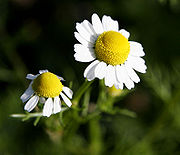Maitake Benefits

The fruiting bodies of maitake mushrooms are rich in polysaccharides, in particular beta-glucans, with one portion of these complex sugars known as maitake’s “D-fraction”. These powerful compounds activate a host defence response by stimulating the proliferation of immune cells such as macrophages, T-cells, natural killer cells and neutrophils. These cells will help the immune system to rapidly and efficiently fight against illness, increase resistance against sickness and disease, help the body to remove cellular waste and speed up recovery from tissue damage. The polysaccharides found in maitake mushrooms are also helpful to those undergoing heavy treatment for life threatening illnesses and have been reported to reduce the side effects of certain treatments.
Blood Sugar Levels
There is evidence to suggest that maitake mushrooms may help to lower blood sugar levels. According to a study by Japanese researchers Hiroake Nanba and Keiko Kubo, a decrease in blood glucose levels is observed in mice given doses of maitake mushrooms compared to a control group. This led them to believe that the mushrooms may work to decrease insulin resistance, which in turn led them to conclude that maitake may be useful for the prevention and management of Type 2 diabetes.
Digestive Health
A study done by the College of Pharmacy at Yeungnam University in Korea found that maitake mushrooms demonstrate an anti-inflammatory effect on the GI tract, with the authors concluding that maitake is a “valuable medicinal food for IBD (irritable bowel disease) treatment and may be useful as an alternative treatment for IBD”. In the study, it was shown that maitake reduced a primary inflammatory signal known as TNFa, inhibiting colon ulceration and free radical damage, thus promoting a healthy GI tract.
Weight Loss
Fibre rich and low in calories, these fabulous fungi can increase satiety and a feeling of fullness. A study by Yakota gave 30 overweight adults daily doses of maitake mushrooms without changing any other aspect of their diets. After 2 months the participants had lost an average of 7 – 13lbs.
Folklore and history
Maitake means ‘dancing mushroom’ in Japanese and has always been attributed to the feeling of joy. This might be because in feudal Japan local lords are said to have paid their subjects the equivalent weight of maitake in silver. A tradition arose whereby the local lords would present their Shogun with maitake mushrooms to gain their favour. Japanese Villagers are said to have danced for joy upon finding a big clump of maitake because they knew that they would be paid handsomely for them.
It wasn’t until the 1980’s that Maitake were grown commercially, and up until this point maitake was the exclusive domain of those who knew where they grew. Because they were seen as such a delicacy, and because of high demand, a culture of expert mushroom foragers flourished in the mountainous northern regions of Japan. These foragers would jealously guard exact locations in the forest where the mushrooms fruited. These spots were called ‘treasure islands’ and would be a secret to the forager until his death - only ever passed onto the eldest son in a will.
Even though cultivation of maitake was perfected and they have been commercially available since the 1980’s, there still exists the culture of Japanese mushroom foragers, since many prefer maitake that are found in the wild. Wild maitake can grow into clusters the size of a volleyball or even bigger while commercially grown mushrooms usually have much smaller fruiting bodies.
Traditional use
The Japanese have always been at the forefront of traditional mushroom knowledge and the Maitake Mushroom is no exception. Extending back through Japanese history, Maitake has played an important part in local economies and traditions being recognised for its delicious flavour and a favourite amongst Japanese royalty. As with other mushrooms in East Asia, the Maitake was treasured for its longevity properties and was thought to bring vigour to the body. Taken as a tonic, this mushroom was rumoured to fortify the immune system, lower blood pressure and bring extra vitality when taken regularly.
Although the medicinal benefits of the maitake mushroom are very important to the Japanese, it is the taste that has made this mushroom famous. Described as woody, smoky, deep and rich, maitake is said to awaken ‘umami’ or ‘the fifth taste’ and acts as a natural flavour enhancer when cooked with other foods. Maitake grows in forests on the decaying roots of oak, beech and other hardwood trees. According to local Japanese folklore it prefers trees that have been struck by lightning.
Typical use
Most commonly this mushroom is consumed as a food. In China and Japan it is also taken for its medical properties.
Constituents
Beta-glucans, fractions D and MD; Grifon-D, complex immunostimulant polysaccharides, amino acids, water, minerals: potassium, calcium, and magnesium and vitamins (b2, d2 and niacin)
Precautions
Maitake shouldn’t be taken by those who have low blood pressure as this Mushroom could lower it even further.
Maitake shouldn't be taken by those on diabetes medication to lower blood sugar as it might cause blood sugar to go too low
